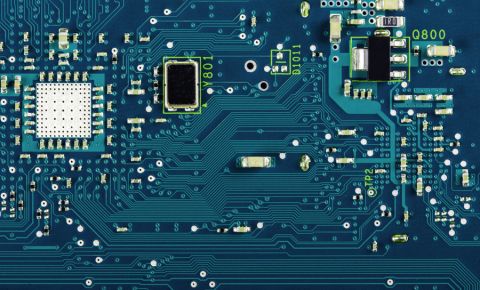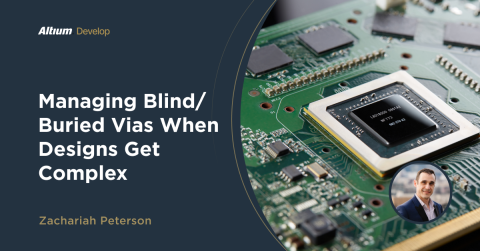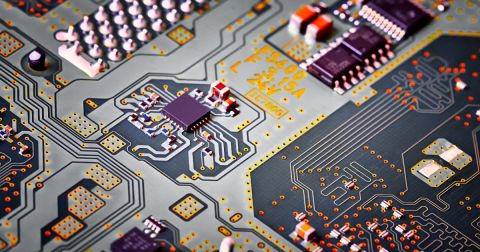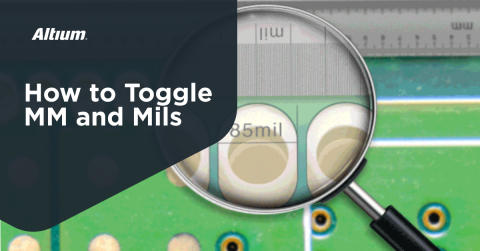PCB Design Guide for Engineers, Part 1

Bringing a design from conception to fully assembled PCB is a daunting task that requires the cohesion of an entire team. Understanding each team member’s role in the design process is tantamount to the successful development of your product. Read on to find out more.
Unite Your PCB Design Team to Deliver Successful Products
Bringing a design from conception to fully assembled PCB is a daunting task that requires the cohesion of an entire team. Indeed, the many tasks involved with creating a PCB don’t just fall on single pair of shoulders. There are many engineering and scientific disciplines that must be harnessed and managed to bring your vision to life. As the project engineer, your first task is identifying your team in order to successfully coordinate the development of your design.
Effectively Orchestrate the Collaborative Development of Your Product
The members of your staff typically depends on the size of your organization, but can often be categorized as follows:
There are many roles that tie in to bringing your design from concept to completion. Grasping these roles and understanding their place in the design process is the first step in ensuring the successful development of your product. Let’s take a look at some of these roles and how they play into the overall design process.
Design Engineer
You — Yes, you are in the driver’s seat, balancing both performing your tasks as well as managing the team listed below in bringing this PCB to life. And, you are responsible for the end product. The final sign-off and approval are yours. The buck stops here.
ERP/MRP System
Enterprise resource planning (ERP) and material requirements and planning (MRP) are where it all begins. From the initial concept to the final product, your ERP/MRP system plays a significant role in the design and development of your processes and planning. Most of the software tools used by your team for the design and development of your products interface directly with your MRP system. Altium Designer® has a supplier link system that can link to directly to your ERP/MRP system using an open database connectivity (ODBC) connection. Having this link available to external supply resources along with a link to your company’s database allow you to seamlessly integrate all of that data into your supply chain.
PCB CID+
This team member should be well versed in all facets of the design process. In fact, in some cases, you may just have to hand over the completed schematic and bill of materials, and the PCB does the rest, including managing the entire process for you. This allows you to have the freedom to focus on other project related tasks. The PCB has an understanding of the electrical characteristics of electronic circuits and how to apply and produce the documentation required to fabricate and assemble a PCB. In addition, the should be well versed in the material sciences related to PCB manufacture, as well as the processes related to PCB assembly.
It would be well suited to have a who has been trained and holds the title of CID (Certified Interconnect -Basic) or CID+ (Advanced) from the IPC — Association Connecting Electronics Industries. CID and CID+ are valuable professional credentials recognized throughout the electronics industry. Altium ® in the hands of a skilled PCB delivers the results you are looking for in a finished PCB design.
(Note: If you are not using a PCB, then you must defer to your mechanical engineer who would be able to traverse the landscape of the external fabrication and assembly resources as well as be an invaluable resource when it comes to the documentation process.)
Successfully Deliver Your Desired Finished Product with Proper Team Management
Orchestrating all of the activities and tasks for product design can be a daunting effort, to say the least. As we continue the series through this guide, we will introduce you to proven design methodologies and design review procedures that increase success in delivering the desired finished design.
Team members understanding of their roles in the process is tantamount to the measured success of the project. Team members must also have the proper tools to complete their tasks. Altium is not a tool just for engineers, the unified environment along with collaborative features can be tailored to any organization, be it a startup or a global organization. Altium provides a licensing environment that is flexible and can be adapted to any organization’s needs.
For more information on team dynamics in the electronics design process, download the free whitepaper PCB Design Guide for Engineers: Part 1 today.










